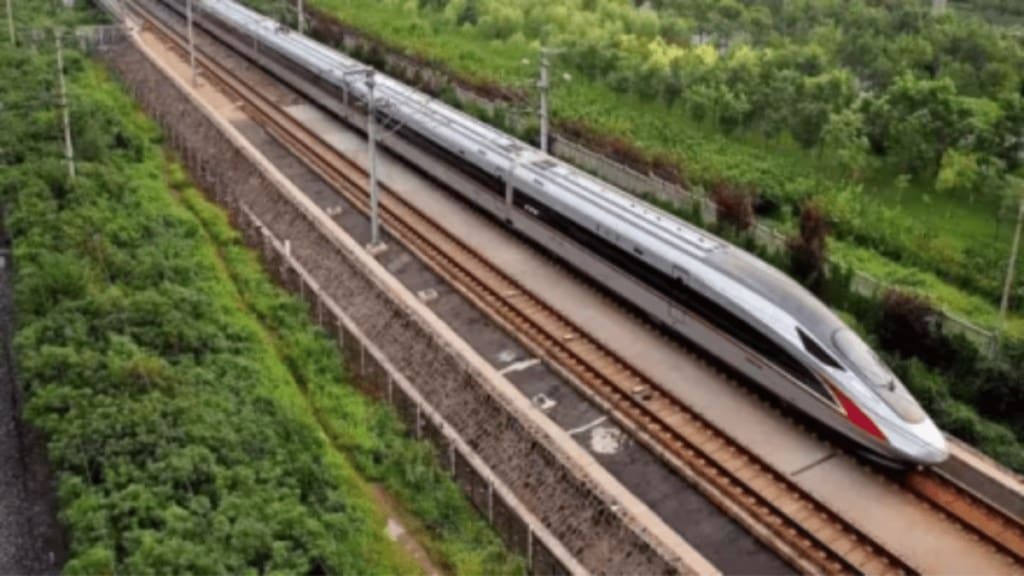State-owned BEML will begin manufacturing India’s first bullet train prototype in September this year at its existing facility in Bengaluru, which also produces Vande Bharat sleeper trainsets. The first bullet trainset is slated for speed testing by December next year, BEML chairman and managing director Shantanu Roy told FE. BEML has been awarded the contract for the design, manufacturing, and commissioning of two high-speed trainsets.
“The work is at the design stage right now. The critical design part should be over in a couple of months, and we will start the manufacturing activity by September. It involves a lot of new learning and the next level of technology in areas like passenger safety, sheet metal work, welding, signalling, and train control management system (TCMS),” Roy said.
In October last year, the Integral Coach Factory (ICF) tasked BEML with indigenously producing two high-speed trainsets, each comprising eight coaches and designed to reach speeds of 280 kmph. While the trains will be tested at 280 kmph, their operational speed will be 249 kmph. The total project cost is Rs 866.87 crore, translating to Rs 27.86 crore per coach, significantly lower than the latest Shinkansen coaches, which cost Rs 46–48 crore each.
BEML, Bengaluru-based defence PSU, claims its high-speed trains are more cost-effective than those of competitors, thanks to domestic sourcing of products and components — including the stainless steel used to manufacture Roy said that BEML expects to have the first coach (of the train) ready by the end of FY26 which will then undergo rigorous testing. “In a high-speed train, weight is most important so it has to be lightweight. Some tests that will carried out include squeeze test and climatic chamber test which is meant to check its durability in different conditions. Once this coach is approved, there will be a bulk production of 15 more cars which won’t take much time,” he said.
By December 2026, the first bullet train prototype is expected to be rolled out for oscillation trials and speed testing, which will be conducted on the actual Mumbai-Ahmedabad High-Speed Rail (MAHSR) corridor.
Further, Roy said BEML has engaged a host of consultancies to keep a close check on the quality and processes. “For validating our design, we have built several layers. We have onboarded a design verification agency that is an internationally reputed firm, which has already done work on such projects. We also have a design validation agency, which will carry out all the testing. We will rope in experts who will guide us in welding because welding is critical. Then, there will be an independent safety assessor,” he said.As part of the National Infrastructure Pipeline (NIP), the ministry of railways has identified seven high-speed rail corridors. These include routes such as Delhi–Varanasi (813 km), Delhi–Ahmedabad (872 km), Mumbai–Nagpur (767 km), Mumbai–Hyderabad (671 km), Chennai–Bengaluru–Mysuru (464 km), Delhi–Chandigarh–Amritsar (476 km), and Varanasi–Howrah (752 km). Detailed project reports for at least four of these corridors have already been submitted.
Roy said that BEML is equipped to grab more opportunities in this space. “ We are training our existing manpower, and ramping up the capacity to take on more rail projects,” he said.The MAHSR project is being implemented with official development assistance from JICA, which is providing a loan at an interest rate of 0.1%. JICA is funding 81% of the construction and procurement costs, while the remaining amount is being shared by the central government and the state governments of Maharashtra and Gujarat.
